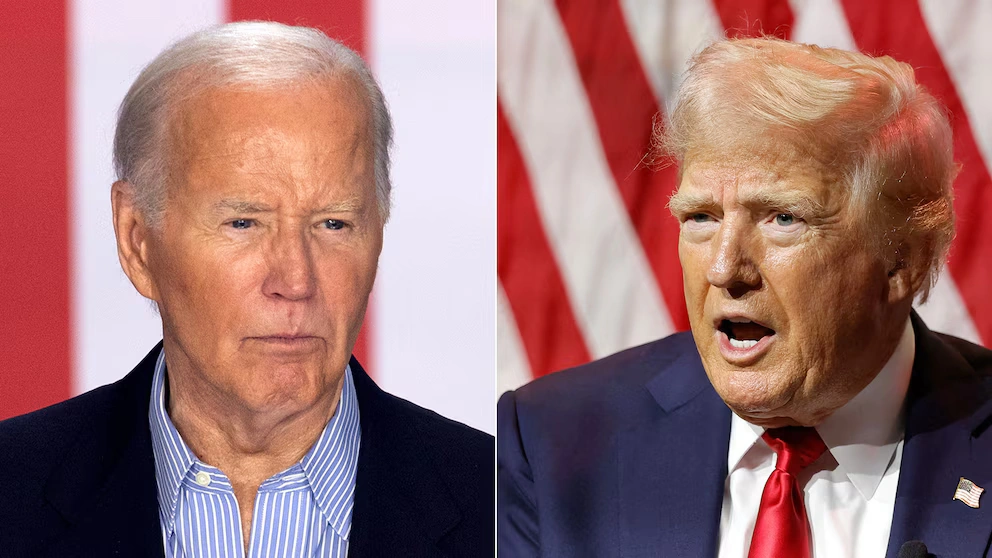Introduction
In a significant cybersecurity development, Google has confirmed that Iranian hackers, linked to the Iranian government, targeted individuals associated with the campaigns of both President Joe Biden and former President Donald Trump. This revelation underscores the growing threat of foreign interference in U.S. elections.
Background: Iran’s Cyber Operations

Iran has a history of cyber operations aimed at disrupting political processes in other nations, particularly the United States. The Islamic Revolutionary Guard Corps (IRGC) is often linked to these activities, leveraging sophisticated techniques to infiltrate and exploit sensitive information.
The Google Threat Analysis Group’s Report
Google’s Threat Analysis Group (TAG) disclosed that APT42, an advanced persistent threat group linked to Iran’s IRGC, targeted the personal email accounts of approximately a dozen individuals affiliated with Biden and Trump. These attacks are part of a broader strategy to gain insight and potentially influence U.S. electoral processes.
Nature of the Attacks
The Iranian hackers primarily attempted to gain access to personal email accounts of individuals involved in the campaigns. Google reported numerous unsuccessful attempts to compromise these accounts, which included current and former government officials and campaign associates.
Google’s Response and Mitigation Efforts
Google’s TAG played a crucial role in thwarting these cyberattacks. They managed to block multiple attempts by APT42 to breach the accounts and promptly notified the affected campaigns. Additionally, Google referred the cases to law enforcement for further investigation, highlighting the ongoing risks of such cyber threats.
Impact on the Campaigns
Although Google was able to block many of the attempts, the persistent nature of these attacks raises concerns about potential future breaches. The targeting of both Biden and Trump campaigns suggests a broader strategy by Iran to infiltrate U.S. political processes, potentially gaining leverage or insight that could be used to Iran’s advantage.
APT42: An Overview

APT42 is known for its focus on political and economic espionage, often targeting entities that could influence Iran’s geopolitical standing. This group is closely associated with Iran’s broader cyber warfare strategy, which has included attempts to disrupt electoral processes in the U.S. in the past.
Historical Context: Iran’s Cyber Operations in U.S. Elections
This is not the first time Iran has attempted to interfere in U.S. elections. During the 2020 presidential election, similar efforts were made by Iranian and other foreign actors to hack into campaign infrastructure. These attempts were part of a larger pattern of cyber operations aimed at influencing the outcome of U.S. elections.
Trump’s Response
Former President Trump blamed Iran for the cyberattacks on his campaign. In his public statements, Trump praised the Federal Bureau of Investigation (FBI) for their probe into the incident, emphasizing the seriousness of the threat posed by foreign interference.
The Broader Implications for U.S. Election Security
The confirmation of these attacks by Google raises important questions about the security of U.S. elections. With foreign actors like Iran actively seeking to disrupt and influence political processes, there is a pressing need for enhanced cybersecurity measures.
The Role of Cybersecurity in Modern Elections
Cybersecurity has become a critical aspect of modern election infrastructure. With the increasing digitization of campaign operations, from voter outreach to fundraising, the potential for cyberattacks has grown exponentially. Protecting these digital assets is essential for maintaining the integrity of elections.
Challenges in Securing Campaign Infrastructure
Campaigns, by their nature, are decentralized and involve a wide array of individuals, making them particularly vulnerable to cyberattacks. Ensuring that all members of a campaign adhere to strict cybersecurity protocols is a daunting task, especially when facing sophisticated adversaries like APT42.
U.S. Government’s Response to Foreign Cyber Threats
The U.S. government has taken steps to address the threat of foreign cyber interference in elections. Agencies like the FBI and the Department of Homeland Security (DHS) work closely with private sector partners like Google to monitor and respond to these threats.
Collaboration Between Private Sector and Government
The collaboration between Google and law enforcement in responding to these cyberattacks highlights the importance of public-private partnerships in safeguarding election integrity. Tech companies play a critical role in detecting and mitigating cyber threats, while government agencies provide the necessary legal and investigative support.
Legislative Efforts to Enhance Election Security
In recent years, there have been legislative efforts aimed at bolstering the security of U.S. elections. These measures include increased funding for cybersecurity initiatives, as well as stricter regulations on campaign infrastructure. However, the evolving nature of cyber threats requires continuous adaptation and vigilance.
The Ongoing Threat of Foreign Interference
The ongoing attempts by APT42 to compromise U.S. election campaigns underscore the persistent threat of foreign interference. As technology continues to evolve, so too do the tactics used by foreign adversaries to disrupt political processes.
Preparing for Future Elections
Looking ahead to future elections, it is crucial for campaigns to remain vigilant and proactive in their cybersecurity efforts. This includes regular training for campaign staff, the use of advanced security tools, and close collaboration with cybersecurity experts.
The Role of Voters in Ensuring Election Integrity
Voters also have a role to play in ensuring the integrity of elections. By staying informed about the potential threats and understanding the importance of cybersecurity, voters can help safeguard the democratic process.
Conclusion
The confirmation of Iran-linked cyberattacks on the Trump and Biden campaigns is a stark reminder of the vulnerabilities that exist in modern political processes. As foreign adversaries continue to seek ways to influence and disrupt U.S. elections, the importance of robust cybersecurity measures cannot be overstated. It is imperative that both government agencies and private sector partners remain vigilant in their efforts to protect the integrity of democratic institutions.
Read More: 2024 Election Shift: Trump’s Power as a Change Agent Diminished
